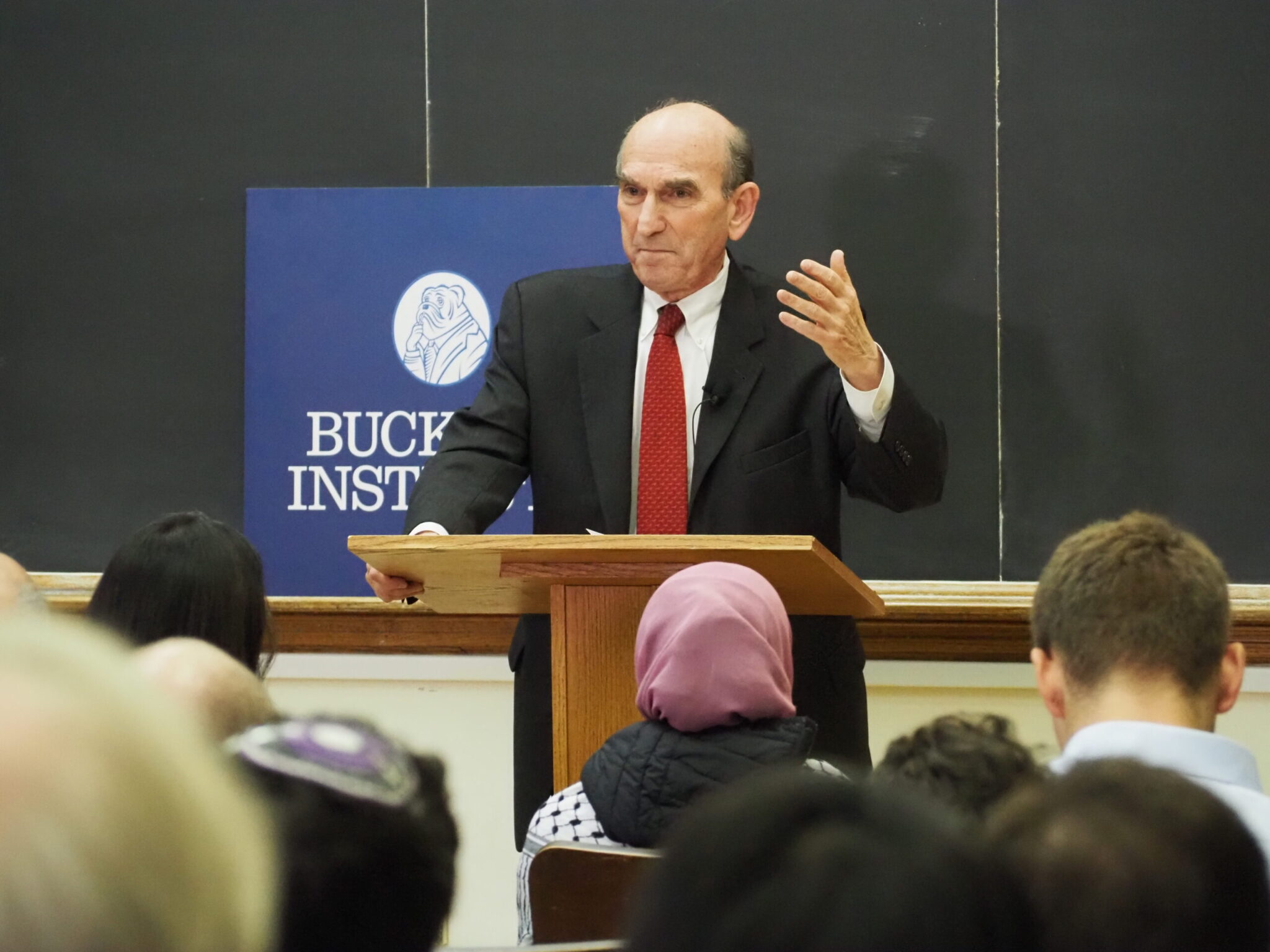Elliott Abrams explores American and Middle East dynamics with the Buckley Institute
Elliot Abrams spoke with the Buckley Institute about U.S ties to Middle Eastern conflict and its policies in Iran, Israel and the Gaza Strip.

Courtesy of the Buckley Institute
Elliot Abrams, senior fellow for Middle Eastern studies at the Council on Foreign Relations, visited the Buckley Institute on Jan. 25 to speak on America’s past and current stance on Middle Eastern conflict and its interest in Israel, Gaza and Iran. Abrams was met with questions from audience members who both supported and disagreed with his stance on Iranian conflicts and Israel-Hamas relations, making for a diverse discussion.
The Buckley Institute, which — per its mission statement — organizes these lectures with speakers of traditionally conservative viewpoints to create lively discussion on Yale’s campus, brought Abrams to campus. Abrams previously served in various presidential administrations — including those of former U.S. Presidents George W. Bush ’68 and Donald Trump. Abrams’ talk aimed to create a space for conversation on American attitudes toward the Middle East, as well as the effect of those attitudes on the ongoing war that Israel is waging in Gaza. He spoke of potential two-state solutions and Hamas’ Oct. 7 attack, which he attempted to contextualize in a longer history of tension.
Since Hamas’ attack against Israel, in which — according to Israel’s Foreign Ministry — Hamas killed 1,200 people and took around 250 as hostages, Israel has unleashed a full-scale military operation in Gaza, killing more than 26,000 Palestinians as of Jan. 26, according to Palestinian health officials.
“I am struck by the fact again that all of these [foreign leaders] speeches say we need to create an independent sovereign Palestinian state,” Abrams said. “Free of Israeli occupation, Palestinians wouldn’t be free, it’s not a democracy … I think a lot more thinking needs to be done than sloganeering about the creation and the nature of a Palestinian state as a kind of magic answer to all of the problems of the region.”
Abrams marked the 1967 Six-Day War and the 1973 Yom Kippur War as turning points in American attitudes toward Israeli statehood in the Middle East. He spoke about a period of “peace processing” where the United States, Israelis and Palestinians held similar interests and asserted that the goal of such processing would be the creation of two states, Israel and Palestine, living in peaceful accord.
Attendees asked Abrams how he might respond to those who would oppose Palestine’s existence as a sovereign state, and whether he thought a middle ground could be offered. Abrams included historical colonies and territories under British, American and Canadian governance as arguments for a Palestinian colony under Israel’s governance.
“Even a Palestine under Israeli control doesn’t have to be a terrible place. Most of the places that were British colonies are democracies. U.S, Canada, Australia, the Caribbean, they were British colonies. Why? Because under the British they had a fair amount of self-government,” Abrams said.
Attendee Ely Altman ’25 expressed gratitude for the diverse perspective on campus that the Buckley Institute pursues: in this case, attendees who are “critical of Israel” alongside “people who like Israel.”
Attendees said that they were glad to have received information from an educated lens from policymakers with opinions across the political spectrum. Other students held the same sentiment regarding receiving diverse leaders on campus but did not agree with some of Abram’s viewpoints.
The William F. Buckley, Jr. Program has over 730 student fellows.







